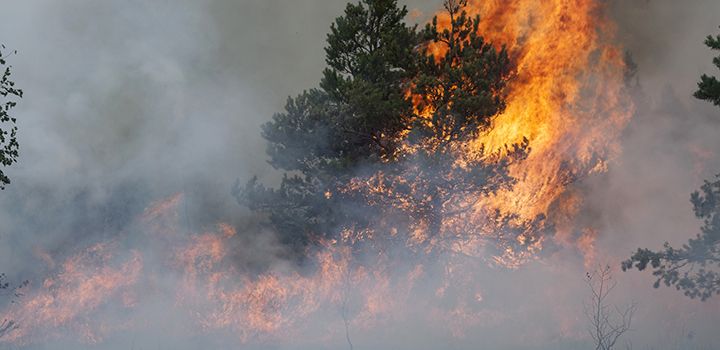Prof Jenni Barclay honoured by the Royal Society of Edinburgh
By: Communications

Prof Jenni Barclay, Professor of Volcanology in ENV, has been honoured for her academic achievements and contributions to the emerging field of social volcanology by the Royal Society of Edinburgh with the James Hutton Medal.
For Prof Barclay, whose background is in geology, the award is a particularly fitting one. James Hutton, known as the Father of Modern Geology, was a fellow Scot who also spent time in East Anglia – in his case in the 18th century to learn farming techniques.
Prof Barclay was awarded the Royal Society of Edinburgh James Hutton Medal for her outstanding contributions to the field of social volcanology, focusing on community engagement and resilience by engaging with communities in Ecuador, Colombia and the Caribbean to reduce risks posed by volcanic activity.
Prof Barclay said:
“I have to say it is pretty astonishing for me. James Hutton is widely known as the father of geology, but more importantly he was someone who discovered and thought a lot about how volcanoes work. He was a polymath and kind of a hero of mine.
“He had these incredible ideas about all the connections that there were between different parts of the earth’s system, and he just thought differently and respected and thought carefully about observation, to win a medal in his name is humbling.”
Studying volcanoes presents a unique set of challenges; prior to an explosive eruption the activity is largely below the earth’s surface, and during an eruption a lot can happen very quickly.
Prof Barclay explains:
“I have conducted research about where magmas are stored and what causes them to erupt, and what controls dangerous changes in their eruptive behaviour. Volcanoes spend a lot of time asleep so when they do erupt, it is all hands to the deck in terms of the observations you can make, and also how you can make good decisions in the face of volcanic activity and its accelerations.
“The really tricky thing about a volcanic eruption is that a lot of things happen in a very short space of time. Most volcanoes don’t just erupt instantaneously. The median length of an eruption is about 4-6 weeks, and in the kind of systems that I work on they have this tendency to change their behaviour.”
The challenge this presents is how to make the best decisions at the right time, often with incomplete information due to damaged instruments near the site, or obscured satellite imaging due to massive ash clouds.
Prof Barclays believes the aftermath of an eruption is best treated like a crime scene, with local knowledge vital to piece together the evidence, she said:
“That’s where the work with communities we have been doing comes in. Understanding what knowledge we can use, but also how this practice of working together and sharing information actually makes us collectively make better decisions in a crisis moment.”
For Prof Barclay, the award represents acknowledgement of a different approach to scientific work, one focused on combining knowledge and collaborating with others to achieve new things.
Related Articles

Protect delicate polar ecosystems by mapping biodiversity
Polar regions contain vast, undiscovered biodiversity but are both the most-threatened and least-understood areas of the world.
Read more
Six UEA professors named in Highly Cited Researchers 2023 list
Six UEA professors have been named in the annual Highly Cited Researchers list for 2023, which celebrates some of the most influential researchers in the world today.
Read more
Lightning identified as the leading cause of wildfires in boreal forests, threatening carbon storage
Lightning is the dominant cause of wildfire ignition in boreal forests – areas of global importance for carbon storage – and will increase in frequency with climate change, according to new research.
Read more